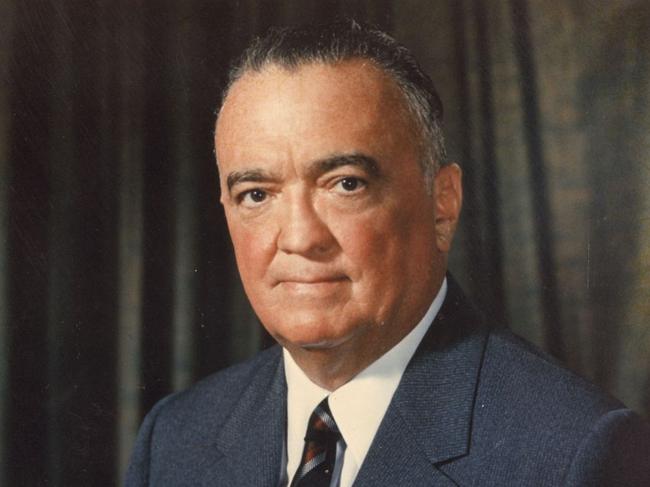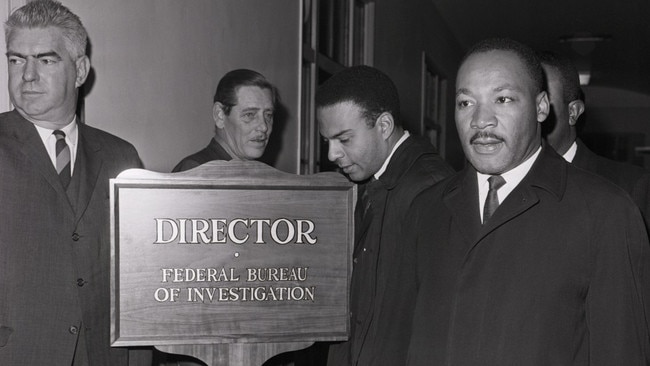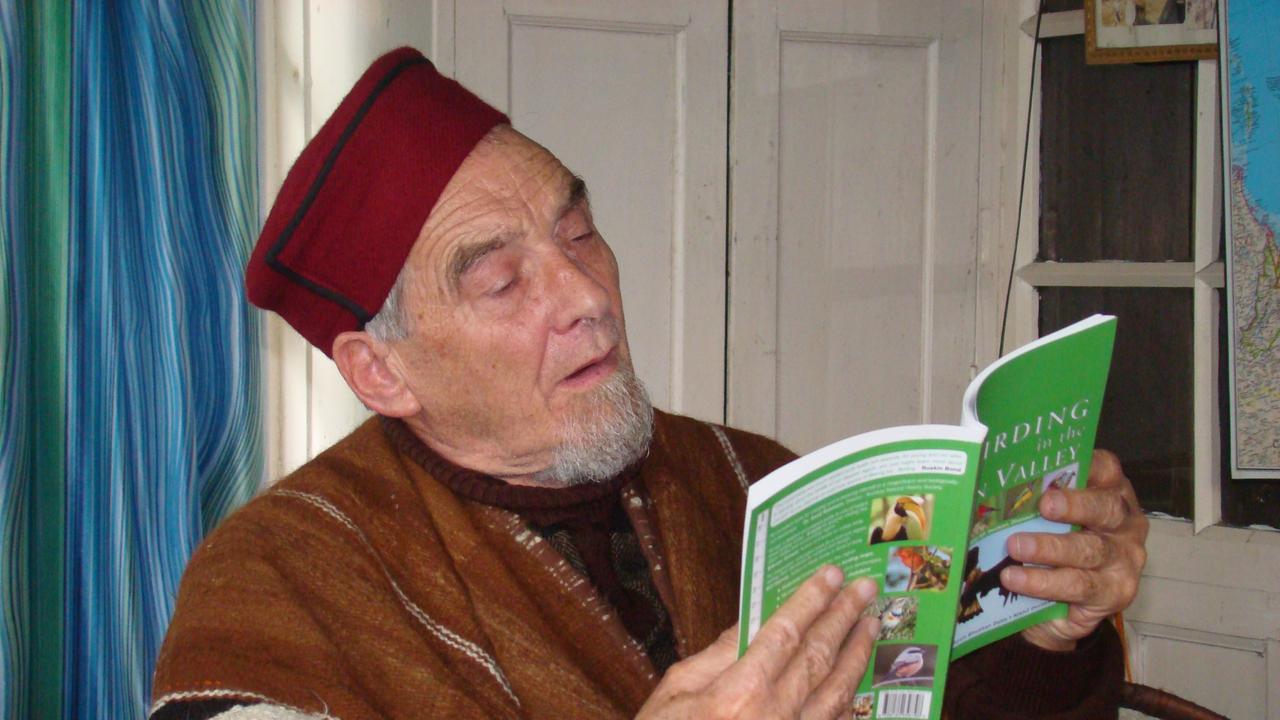Martin Luther King-sized bombshell sits in FBI files
Assassination documents will disappoint Kennedy conspiracists but reveal the full extent of the bureau’s drive to defame Martin Luther King Jr.

In one of his first acts as president, Donald Trump ordered the release of all remaining documents relating to the assassinations of John F Kennedy, Robert F Kennedy and Martin Luther King Jr.
“Everything will be revealed,” declared Trump. With an instinct for historical symbolism, he also ordered that the Sharpie used to sign the executive order be presented to RFK’s son, Robert F Kennedy Jr, his nominee for health secretary.
The JFK files are not expected to contain bombshell revelations. The RFK assassination documents were released from local agencies and the FBI to the California State Archives in the late 1980s. It will be the files on King, America’s revered civil rights leader, that may offer the most startling disclosures. Because there undoubtedly was an FBI conspiracy targeting King. Not to kill him (although the bureau did not do enough to protect him), but to harass, intimidate and defame the black leader in the years leading up to his murder.
FBI chief J Edgar Hoover’s personal campaign against King is one of the most shameful episodes in modern American history. The declassified files may finally expose this, in all its tawdry cruelty.
King was assassinated on April 4, 1968 as he stood on the balcony of the old Lorraine Motel in Memphis, Tennessee. He was rushed to hospital, where he died of a bullet wound to the neck at the age of 39.
The murder weapon was fired by James Earl Ray, a criminal drifter and two-bit racist who had been on the run for almost a year having escaped from Missouri State Penitentiary, where he was serving a 20-year sentence.
Ray fled the country but was captured on June 8, 1968 at Heathrow. Extradited to the US, he pleaded guilty and was sentenced to 99 years in prison. Ray recanted his confession almost immediately. He died in 1998, still maintaining his innocence.
Members of King’s family believe that others were involved but a Justice Department task force ruled that Ray had acted alone, and a select committee investigation uncovered no evidence to indicate complicity by the FBI in the assassination.

What the declassified files may instead reveal is the full extent of the FBI operation to destroy King’s reputation, and in particular Hoover’s Cointelpro project (counterintelligence program), a series of covert and illegal actions between 1956 and 1971 intended to “expose, disrupt, misdirect, discredit or otherwise neutralise” the activities of political movements that the FBI considered subversive: American communists but also civil rights activists, anti-Vietnam War demonstrators, Black Power affiliates and feminists. King was the prime target.
Trump claimed that the release of the files would bring “transparency and accountability” but it is also a way for him to humiliate the FBI, which he blames for investigating allegations that his 2016 campaign colluded with Russia, and for searching his Florida properties in 2022 and discovering more than 100 classified documents. Exposing the FBI’s past crimes is a settling of scores.
Hoover loathed King with a weird passion, describing him as “the most notorious liar in the country” and “a tom cat with obsessive degenerate sexual urges”. In 1963, the FBI began tapping King’s home and office telephones and bugging his hotel rooms, while also sowing divisions within the civil rights movement and spreading false rumours. Assistant FBI director William C Sullivan, who led Cointelpro, later admitted that “no holds were barred” in the “war” against King.
The attorney-general, Robert F Kennedy, approved the electronic surveillance after Hoover told him that King was a “secret member of the Communist Party”, which he was not. Former FBI director James Comey kept the framed original of Hoover’s application to wiretap King on his desk, a daily reminder of how far his predecessor had violated American law.

King angrily denied that the civil rights campaign had been infiltrated by communists. “There are as many communists in this freedom movement as there are Eskimos in Florida,” he said.
The FBI campaign reached its peak with a forged letter sent to King in November 1964, shortly before he accepted the Nobel Peace prize. The blackmail package contained audio recordings documenting King’s sexual indiscretions and warned him: “There is only one way out for you. You better take it before your filthy, abnormal, fraudulent self is bared to the nation.”
Many believe it was intended to persuade King to kill himself. King was subsequently informed that the tapes would be released to the media if he did not submit to FBI coercion tactics.
In 1977, following allegations that the FBI was “weeding” its files, a federal judge ordered the bureau to turn all its material over to the National Archives, ordered it sealed for 50 years and prohibited the disclosure of these files except by an order from a court.

If all the FBI’s transcripts and tapes of its Cointelpro wiretaps are now declassified, some of the material is likely to damage King’s posthumous reputation. In 2019, the American academic David Garrow uncovered an FBI file that described an incident in which King and other preachers invited some women to their Washington hotel room. When one of the women was raped by a preacher, a handwritten comment, appended to the document, claims: “King looked on, laughed and offered advice.”
King’s descendants and other relatives have asked the US government for “the opportunity to review the files as a family prior to its public release”. That is unlikely to be granted.
The president gave US federal agencies 45 days in which to review all archives related to King’s assassination and submit a plan to the White House for “the full and complete release of these records”.
That release is likely to embarrass the FBI and may anger King’s family and supporters. But at least it will bring one of the grimmest episodes in American history out of the shadows at last. As King himself said: “Darkness cannot drive out darkness, only light can do that.”
The Times





To join the conversation, please log in. Don't have an account? Register
Join the conversation, you are commenting as Logout